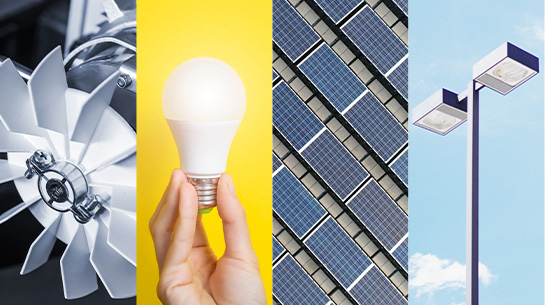
Neoenergia simplifies migration to the free market
The company offers special conditions that facilitate the entry of consumers with contracted demand from 500 kW into the Free Contracting Environment (Ambiente de Contratação Livre - ACL)
The Free Contracting Environment (ACL) is the energy purchase alternative in which certain consumers can choose their energy supplier with more economy, predictability, and even considering the environmental attributes of the generation source. Supporting customers in their business, Neoenergia offers its customers a simplified way to migrate, using the Free Retail Market solution.
With this model, entrepreneurs from any state in the country who have a contracted demand from 500 kW - the equivalent of an electricity bill of approximately BRL 40 thousand, which can be the sum of more than one bill from the same customer – are able to migrate to the free contracting environment in a secure manner. This migration reduces administrative expenses, in addition to reducing costs for consumers, who, if they prefer, can buy energy from a specific source, such as wind generators or solar energy.
In the Free Retail Market, the customer is represented by Neoenergia at the Electric Energy Trading Chamber (Câmara de Comercialização de Energia Elétrica - CCEE), ensuring more practicality in the migration process, reducing bureaucracy and exempting from requirements such as paying fees to the institution or having a special bank account. The simplified solution meets the needs of businesses such as supermarkets or bakeries, clinics, gas stations, shopping centers and industries with different profiles. This is because the minimum demand of 500 kW can be considered at only one point of consumption or through the so-called communion of interests in fact or in law, that is, adding the demands of more than one consumer property with the same CNPJ as a root, as in a head office with its branches.
According to the Brazilian Association of Energy Traders (Abraceel), since 2003, the free market has provided savings of almost 30% compared to the costs of energy purchased in the regulated environment of its local distributor. “Market liberalization is relentless. Today, something around 34% of all energy consumed in Brazil is traded on the free market in a freely negotiated manner, with the majority of customers being those called special consumers, that is, those small customers who, acting with the sharing of loads, can migrate to the unregulated market. This is the public of our Free Retail Market solution. Through the retail trader, the modernization of the sector becomes clear in terms of market liberalization, bringing greater ease, less bureaucracy and guaranteeing the benefits that the free market provides” , says Hugo Nunes, director of Liberalized Business at Neoenergia.
This practice is also aligned with the company's corporate purpose, which is committed to the United Nations Sustainable Development Goals (SDGs), primarily the supply of clean energy and the fight against climate change. Renewable sources account for almost 90% of the company's portfolio. In wind,the installed capacity will be tripled by 2023, reaching 1.6 GW.
Big consumers
Neoenergia also offers solutions for large ACL consumers – those with contracted demand above 2 MW. One of them is the PPA (Power Purchase Agreement), a long-term purchase and sale agreement for renewable energy at a fixed price. “The market increasingly demands from large companies actions centered on the pillars of ESG and clean energy can make an important contribution in this process. For information only, in 2021 alone, we have sold more than 5 million certificates I-RECs, Renewable Energy Certificates widely accepted in the global financial market to demonstrate sustainable energy practices and balance greenhouse gas emissions” , says Hugo Nunes.
Other business solutions offered by the company are energy management and engineering, with connection services to the electrical system, in which it carries out infrastructure projects, such as the construction of substations and high voltage lines; correction of the power factor, to avoid penalties in the energy bill; and adequacy of the metering and billing system to the rules of the free market.
News
2025-12-12
Prêmio Brasil Olímpico 2025: Neoenergia reforça compromisso com esporte feminino no país
2025-12-09
Prêmio Aberje 2025: Neoenergia é campeã nacional com campanha sobre segurança na rede elétrica com Carlinhos Brown
2025-12-01
Exclusivo a mulheres negras, Prêmio Inspirar 2025, do Instituto Neoenergia, anuncia vencedoras em quatro estados e no DF
2025-11-27
Neoenergia e Honda se unem para acelerar uso do hidrogênio verde na mobilidade brasileira
2025-11-25
